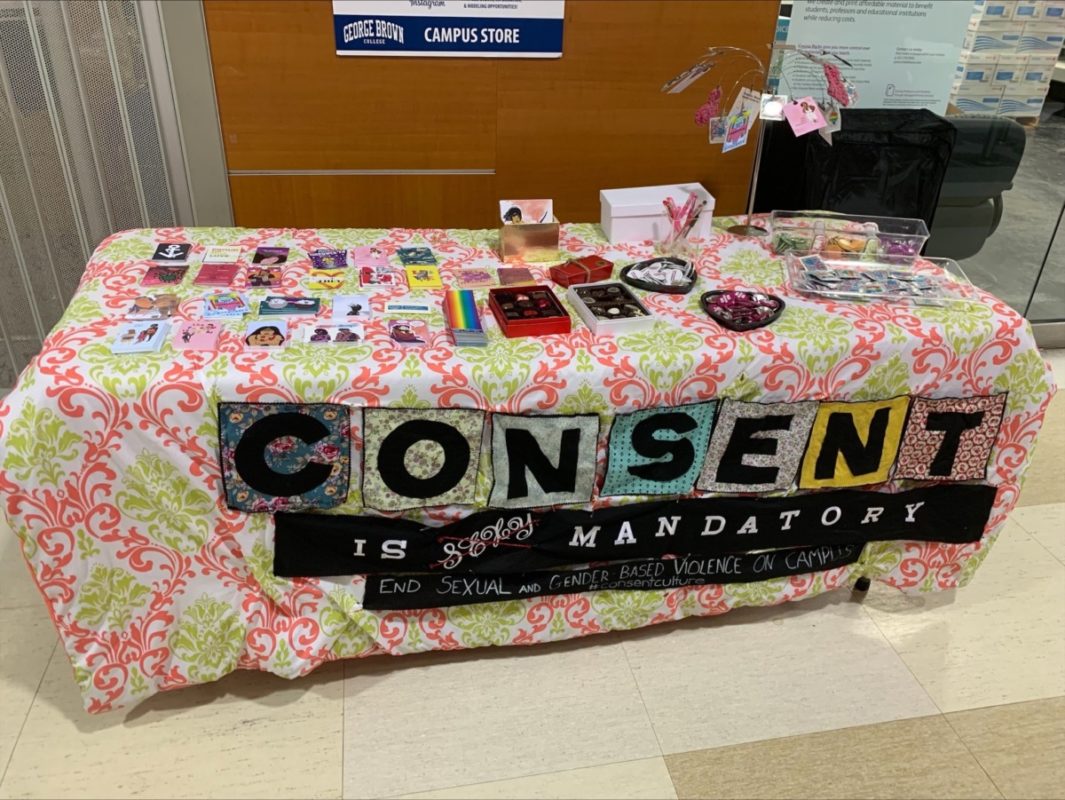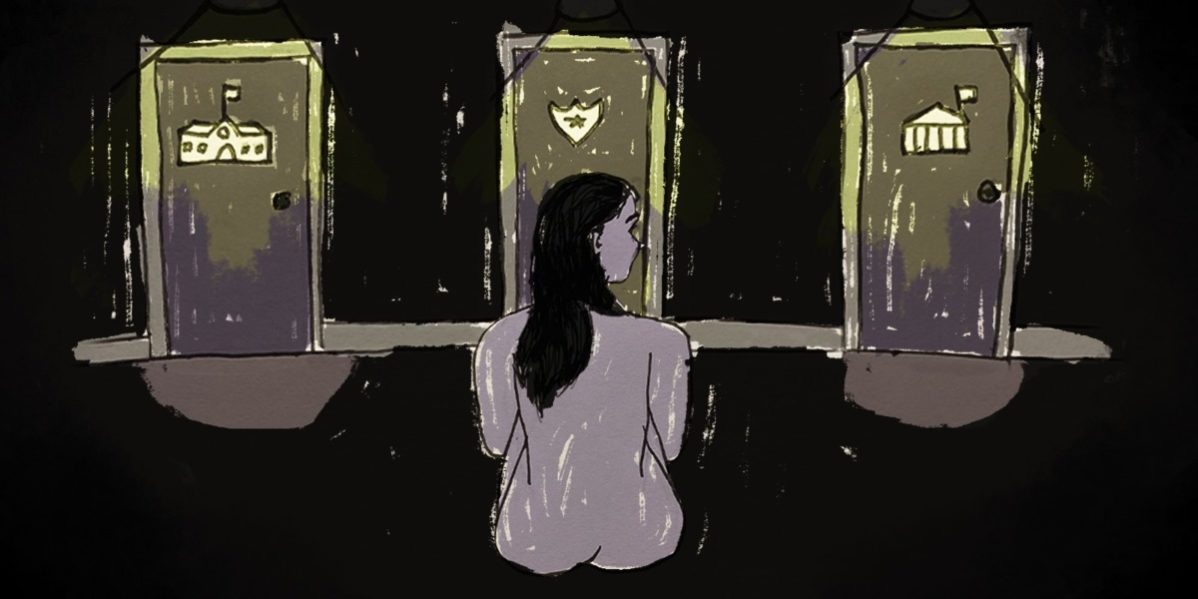CW: This story contains reference to sexual assault.
Shocking reports of sexual assault in Western University residences have been under investigation these past few weeks. Allegations of drugging and subsequent rape were raised at the conclusion of the school’s Orientation Week. In response, the Ontario government called for amendments to school policy in an effort to encourage survivors to speak out.
Unfortunately, this is not the first time an issue of this nature has occurred, nor is Western the only university or college that has experienced such an epidemic.
The Dialog team conversed with Charlene Holmes, the community care coordinator at the Student Association’s Community Care Centre (CCC), to discuss their thoughts on the incident and on the broader prevalence of rape culture on campuses across Ontario.
How did GBC students and admin react to the reports that came out of Western?
As an alumnus of Western themselves, Holmes admits that things have not changed much from when they were in school.
“I know in light of the Me Too movement, these issues get more traction and we’re starting to understand it better on a societal level, but at the same time, this was always going on,” said Holmes. “I regret that these isolated incidents have to occur, that the harm has to occur for someone to listen. Reports of abuse and other violence have gone unnoticed until someone takes it to social media.”
Statistically, Holmes says that most on-campus sexual assaults occur within the first eight weeks of classes, so the Western University assaults were sadly unsurprising. “What is the administration doing? What are our student peers doing that isn’t working?” they said.
Despite their disappointment, Holmes is optimistic about the future. “We are changing as a society. And I think we’re getting to a point where we’re starting to understand that these are not isolated incidents. It’s not just women – it’s men, non-binary, trans folks who are also impacted by sexual violence.”
The assaults that occurred at Western could act as a catalyst for change, says Holmes.
“I think this puts pressure on not only administration of post-secondary institutions but on students to act,” said Holmes. “I would say the only silver lining out of this is that students are finding their voice and they’re finding their power. They’re understanding that these institutions can’t run without them.”
“It’s amazing and absolutely justifiable to demand change and demand better. Not just an educational experience, but a circumstance where students don’t have to fear this violence, or change their livelihood to work around someone else’s inaction.”
When you look at the current policies and the culture in post-secondary institutions in general, what would you like to see change?
“We don’t need more police on campus,” said Holmes. “It starts with cultivating a culture of consent.” Western is not a one-off occurrence and as such, change must be systemic.
Consent is a word often used in the context of relationships or sexual experiences, but Holmes says that even the smallest actions, such as asking if you can add someone on social media, can be practicing consent.
“These are just little things,” said Holmes. “But it all contributes to an understanding that people do have the autonomy and the choice to say no. And that ‘no’ does mean no.”
Holmes stressed that equally important is calling rape culture for what it is, rather than tiptoeing around the words, and admitting to the uncomfortable fact that it is embedded in post-secondary institutions.
“Whether it’s frats, STEM programs, or other programs that are genderly segregated – this all seeps into larger rape culture,” they said.
What measures has the Community Care Centre (CCC) taken to curb sexual harassment at our school and encourage change?
The CCC is an organization dedicated to advocating and lobbying against violence and injustice, which can impede a student’s right to an education that is safe and accessible. In the context of sexual assault, Holmes, who leads the CCC’s programming, says it plays a role in supporting survivor concerns and nurturing consent culture.
The CCC runs campaigns, such as the Consent Comes First initiative through the Canadian Federation of Students.

The CCC’s consent campaigns including Consent is Mandatory tabling at GBC campuses.
GB“We’ve done tabling class talks, resources. We also have supplies such as buttons with the saying ‘no means no,’” says Holmes. “In the past, we’ve used coat hangers with consent affirmations as reminders for students.”
Their equity-centric events help emphasize that survivor concerns are valid and respected.
“In terms of support, the community care center offers peer support for students, especially students from our equity groups. Sexual violence is not a unique issue – it seeps into our equity groups beyond a gendered lens,” Holmes said.
The manager of GBC’s student residence, The George, did not respond to a follow-up for comment on the situation at Western University.
“The Community Care Centre has done tabling and outreach to all of our residences,” said Holmes. They maintain that “The George is still governed by not only George Brown sexual violence policy, but other legislation policies where there should be a zero-tolerance approach.”
How can the CCC support a George Brown student who is a survivor of sexual violence on campus?
In the immediate aftermath, Holmes stressed the importance of allowing space for the individual to express their sentiments.
“That first point of contact, whether it’s connecting with one of our equity staff, one of our full-time staff – the first resource survivors need is just to be heard and listened to,” Holmes said. They maintain that survivors should be affirmed, and know “that they are not alone in navigating these resources.”
The organization plays a key role in offering both community and external referrals. Internally, GBC has its own office at each campus dedicated to addressing sexual violence. They can also point survivors towards counselling services outside of the college, for example.
The CCC is also adept at tailoring its referrals to the specific needs of various equity groups. “Resources and referrals are important specifically if students from our equity groups want that kind of support and want to be able to relate to someone when sharing their experience,” Holmes said.
“We are here for students,” said Holmes. “We understand that their experiences are valid and that we will continue to support them, and contribute to the change that is needed.”
Students who have been impacted by sexual violence are encouraged to reach out to the CCC and make use of the college’s list of resources, which can be accessed by clicking here.


